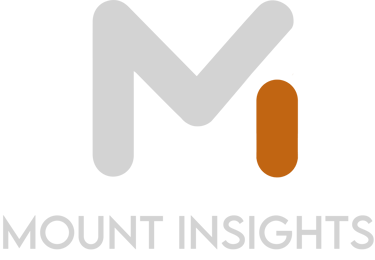
Legal and Business Intelligence: A Tool-by-Tool Guide
Michelle Woodyear
In today's fast-paced, data-driven business environment, staying ahead of the curve is not just an advantage—it's a necessity. Legal professionals, business analysts, and decision-makers across industries are increasingly turning to sophisticated tools and platforms to gather intelligence, conduct research, and make informed decisions. This blog post explores a range of cutting-edge legal and business intelligence tools that are reshaping how organizations operate, strategize, and compete in the modern marketplace.
From comprehensive legal databases to AI-powered analytics platforms, these tools offer unprecedented access to information and insights. Whether you're a lawyer preparing for a high-stakes case, an investor researching market trends, or a policy professional tracking regulatory changes, there's likely a specialized tool designed to meet your needs. Let's dive into the world of legal and business intelligence tools and discover how they're transforming professional practices across the board.
Legal Research and Analytics Tools
The legal technology landscape has evolved dramatically in recent years, offering a suite of powerful tools for research, analytics, and case management.
Westlaw remains a cornerstone in legal research, providing an extensive database of case law, statutes, and regulations. Its KeyCite feature is invaluable for ensuring the reliability of legal citations, while its AI-powered research assistant is pushing the boundaries of what's possible in legal tech.
As Sarah Johnson, a senior associate at a top law firm, notes, "Westlaw's AI assistant has dramatically cut down our research time. What used to take hours can now be accomplished in minutes, allowing us to focus more on analysis and strategy."
For those seeking specialized litigation insights, Lex Machina has become a game-changer. By leveraging AI and natural language processing, it offers predictive analytics on case outcomes, timing, and damages.
John Lee, a patent attorney, shares, "Lex Machina has transformed how we approach patent litigation. The ability to analyze historical data and predict outcomes has given us a significant edge in developing case strategies."
Bloomberg Law bridges the gap between legal research and business intelligence. Its integration of legal databases with business news and analytics makes it a versatile choice for corporate legal departments.
"Bloomberg Law's docket tracking and regulatory impact analysis have become indispensable for our compliance efforts," says Maria Rodriguez, in-house counsel at a Fortune 500 company.
For those focusing specifically on court documents, PACER (Public Access to Court Electronic Records) continues to be the go-to resource for accessing U.S. federal court documents. Its real-time updates on case filings across multiple jurisdictions make it an essential tool for litigators and legal researchers alike.
Financial and Market Intelligence Platforms
Transitioning from legal to financial intelligence, we find equally sophisticated tools designed to provide deep insights into markets, companies, and economic trends.
CapIQ stands out as a comprehensive platform for company research, financial analysis, and market data. Its extensive database, covering both public and private companies, makes it invaluable for investment bankers, equity analysts, and corporate development teams. The platform's Excel plug-in has become particularly popular for financial modeling and valuation tasks.
As Michael Chen, a senior investment analyst, puts it, "CapIQ's integration with Excel has revolutionized our financial modeling process. We can pull in real-time data and update our models on the fly, saving countless hours and improving accuracy."
For those focused on private markets and venture capital, PitchBook has become the go-to resource. It provides detailed insights into startup funding, valuations, and investor profiles.
"PitchBook has fundamentally changed how we approach market research in the VC world," says Ava Thompson, a partner at a leading venture capital firm. "The depth of information on private companies and deals is unparalleled, allowing us to make more informed investment decisions."
Government and Policy Intelligence
As we shift our focus to the public sector, several tools stand out for their ability to navigate the complex world of government policy and spending.
Bloomberg Gov offers real-time tracking of legislative and regulatory activities, along with a comprehensive database of government contracts and grants. It's particularly valuable for policy professionals, government contractors, and lobbyists who need to stay ahead of policy changes and identify new opportunities.
Robert Simmons, a government relations specialist, shares, "Bloomberg Gov has become our early warning system for policy changes. It allows us to anticipate regulatory shifts and advise our clients proactively."
For those specifically interested in political finance and lobbying, the Lobbying Disclosure Database and OpenSecrets AI provide crucial insights into political contributions and lobbying activities. These tools have become essential for journalists, researchers, and watchdog organizations tracking the flow of money in politics.
Sales and Business Development Tools
In the realm of sales and business development, technology is equally transformative.
LinkedIn Sales Navigator has emerged as a powerhouse for lead generation and prospect research. Its advanced search filters, real-time updates on prospects, and direct outreach capabilities through InMail have made it an indispensable tool for sales organizations.
"Sales Navigator has completely changed our approach to B2B sales," notes Emily Roberts, a sales director. "The ability to identify and connect with decision-makers, coupled with real-time insights into our target accounts, has significantly improved our conversion rates."
Specialized Legal and Business Tools
The landscape of legal and business intelligence also includes a variety of specialized tools catering to specific niches.
DocketNavigator focuses on patent litigation research, while Courthouse News provides court case information and legal news services. For tracking merger and acquisition activities, MergerMarket offers a specialized platform that has become essential for M&A professionals.
In the corporate intelligence sphere, Westlaw Company Investigator and Westlaw PeopleMap provide powerful tools for due diligence and background checks. These have proven particularly useful for legal professionals conducting witness research or corporate investigations.
Data and Analytics Consulting
As organizations grapple with increasing amounts of data, services like InOutSource have emerged to offer specialized consulting on data management and business intelligence, particularly for law firms and legal departments.
Public Data Resources
It's important to note that amid these sophisticated paid tools, several valuable resources remain freely available to the public. The SEC's EDGAR Search continues to be an essential tool for accessing public company filings, crucial for financial research and due diligence. Similarly, USAspending offers a comprehensive database of U.S. government spending, allowing for in-depth analysis of federal contracts and grants.
Conclusion
The proliferation of legal and business intelligence tools has fundamentally transformed how professionals across industries gather information, conduct research, and make decisions. From AI-powered legal research assistants to predictive analytics in litigation, from comprehensive financial databases to specialized government policy trackers, these tools are enabling unprecedented levels of insight and efficiency.
Key trends emerging in this space include:
The growing integration of AI and machine learning, enhancing predictive capabilities and automating routine tasks.
An emphasis on data integration, with tools increasingly offering APIs and integrations to fit into existing workflows.
A balance between comprehensive platforms and specialized niche tools, allowing organizations to tailor their toolkit to their specific needs.
Increased focus on user experience and accessibility, with many tools now offering robust mobile interfaces.
As we look to the future, several exciting developments are on the horizon:
Advanced natural language processing may soon allow for more intuitive, conversational interfaces with these tools.
The integration of blockchain technology could enhance the security and verifiability of legal and financial records.
Augmented reality interfaces may provide new ways to visualize complex data sets and legal scenarios.
Ethical AI will likely become a major focus, ensuring that AI-driven insights are transparent, explainable, and free from bias.
David Martinez, a legal technology consultant, offers this perspective on the future: "The next frontier in legal and business intelligence tools will be true cognitive computing. We're moving beyond simple data retrieval and basic analytics towards systems that can reason, learn, and provide nuanced recommendations. The challenge will be balancing these advanced capabilities with the need for transparency and ethical use."
As these tools continue to evolve, they promise to further democratize access to complex information, level the playing field for smaller organizations, and enable more data-driven decision-making across the board. However, they also raise important questions about data privacy, the changing nature of professional expertise, and the potential for over-reliance on technology.
For professionals across legal, financial, and business sectors, staying informed about these tools and their capabilities is no longer optional—it's a crucial part of remaining competitive in a rapidly changing landscape. As we've seen, each of these tools offers unique capabilities, and many organizations find that a combination of several tools best meets their needs for legal and business intelligence.
The future of legal and business intelligence is bright, promising ever more sophisticated insights and efficiencies. Yet, as always, these tools will remain just that—tools. Their true value will continue to lie in the hands of skilled professionals who can wield them effectively, combining technological capabilities with human insight, creativity, and judgment.
